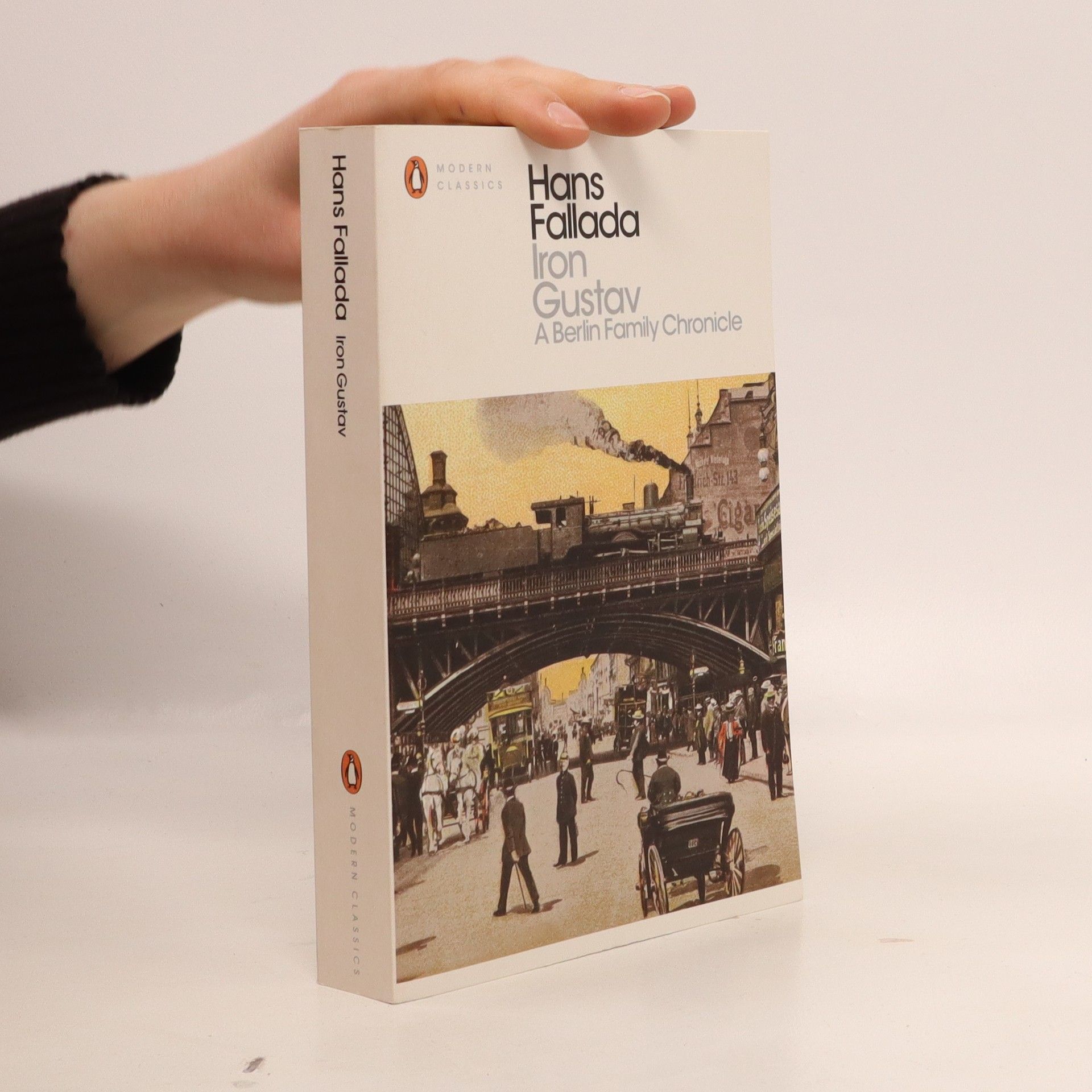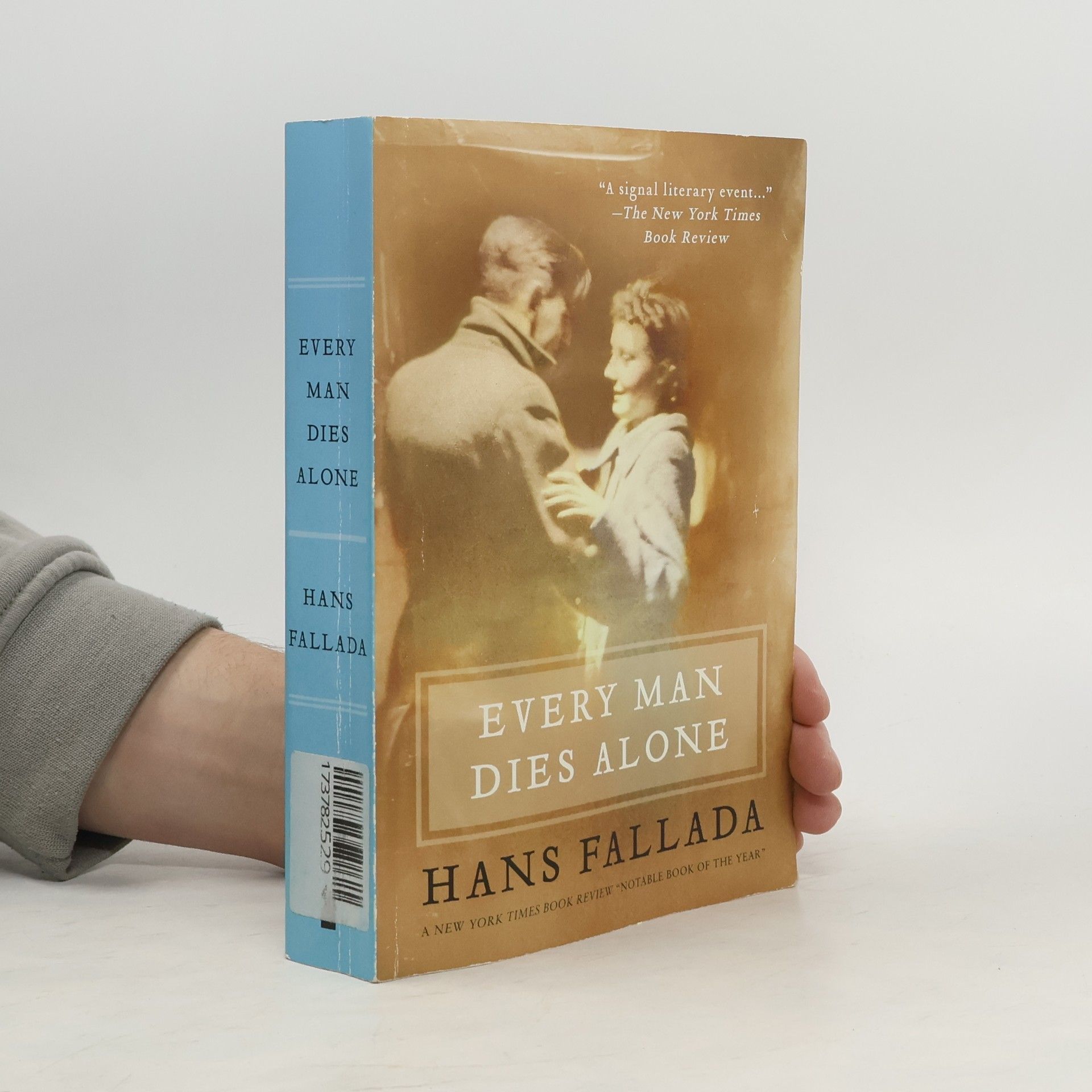Learn German with Every Man Dies Alone Part I: Interlinear German to English
- 532 pages
- 19 hours of reading
Hans Fallada emerged as one of 20th-century Germany's most significant literary voices, his work deeply shaped by personal struggles with addiction, societal alienation, and profound life traumas. He possessed a remarkable ability to illuminate the often-overlooked lives of ordinary people, chronicling their battles for survival and their search for meaning amidst challenging circumstances. Fallada's prose is distinguished by its raw honesty, keen social conscience, and an empathetic understanding of his characters' frailties and resilience. Through his unique narrative approach, he offered readers an unvarnished yet compassionate portrayal of the human condition.


![A short treatise on the joys of morphinism ; [fiction]](https://rezised-images.knhbt.cz/1920x1920/51577006.jpg)




"Based on a true story, this sweeping saga tells the tale of a working class couple in Berlin who decide to take a stand against the Nazis. More than an edge-of-your-seat thriller, more than a moving romance, even more than literature of the highest order, it's a deeply moving story of two people who stand up for what's right, and for each other. Hans Fallada wrote Every Man Dies Alone in a feverish twenty-four days, soon after the end of World War II and his release from a Nazi insane asylum. He did not live to see his its publication."--Page 4 of cover
Intransigent, deeply conservative coachman Gustav Hackendahl rules his family with an iron rod, but in so doing loses his grip on the children he loves. Meanwhile, the First World War is destroying his career, his country, and his pride in the German people. As Germany and the Hackendahl family unravel, Gustav has to learn to compromise if he is to hold onto anything he holds dear.
From the bestselling author of Alone in Berlin, this acclaimed novel follows a young couple navigating life in 1930s Germany. Lämmchen and 'Boy' fall in love, marry, and start a family in Berlin in 1932, but their lives are overshadowed by the changing political landscape. As they struggle with bullying bosses, unpaid bills, monstrous mothers-in-law, and Nazi streetfighters, they question whether love can sustain them. This work, which established Hans Fallada as a significant writer, portrays one of literature's most touching couples, blending comedy with desperation. Published just before Hitler's rise to power, it hauntingly depicts innocents on the brink of losing everything. Michael Hofmann's brilliant new translation captures the era's austerity and turmoil in Weimar Germany. Critics have praised Fallada's genius, noting the emotional depth and variety in characterization. The narrative resonates with both despair and hope, reflecting the complexities of life during a pivotal moment in history. This novel remains a powerful exploration of ordinary people facing extraordinary challenges.
Drawing on Hans Fallada's own history of addiction, these two stories are written with a remarkable, tough, spartan clarity. As a man desperately, haplessly tries to get enough morphine to make it through the day and a drunk embezzler struggles to get himself arrested, they are at one second crushing, the next darkly comic.
Darkly funny, searingly honest short stories from Hans Fallada, author of bestselling Alone in BerlinIn these stories, criminals lament how hard it is to scrape a living by breaking and entering; families measure their daily struggles in marks and pfennigs; a convict makes a desperate leap from a moving train; a ring - and with it a marriage - is lost in a basket of potatoes.Here, as in his novels, Fallada is by turns tough, darkly funny, streetwise and effortlessly engaging, writing with acute feeling about ordinary lives shaped by forces larger than themselves: addiction, love, money.
Previously unpublished and rewritten stories by the acclaimed mid-century German author Hans Fallada have been uncovered nearly a century after his imprisonment. These newly found works offer fresh insights into his literary genius, showcasing his unique narrative style and themes that resonate with readers today.
Noveller. Tales of low-lifes, grifters and ordinary people trying to make ends meet in pre-war Germany
„Ein ganz und gar großartiger Roman.“ Die Zeit Der Sensationsbestseller – ein einzigartiges Panorama des Berliner Lebens in der Nazizeit: Hans Falladas eindringliche Darstellung des Widerstands der kleinen Leute avancierte rund 60 Jahre nach ihrer Entstehung zum überragenden Publikumserfolg in Deutschland und der Welt. Millionen Leser sind berührt von der Geschichte des Ehepaars Quangel, das nach dem Kriegstod des Sohnes einen ganz privaten Weg findet, sich gegen das unmenschliche Regime zur Wehr zu setzen und so die eigene Seele zu retten. Mit einem Nachwort, Glossar und Dokumenten zum zeithistorischen Kontext Diese limitierte Geschenkausgabe wurde erweitert um einmaliges Fotomaterial „Zeitlose Größe erreicht dieses Buch.“ Spiegel online „Das Buch hat die Spannung eines Le-Carré-Romans: ein tiefgehendes, erschütterndes Porträt.“ The New Yorker
Unveröffentlichte Geschichten des Bestsellerautors entdeckt: Erzählungen aus den zwanziger Jahren. Es war der Wendepunkt, bevor er zum Bestsellerautor wurde: Hans Fallada stellte sich 1925 nach Unterschlagungen, mit denen er seine Alkohol- und Morphiumsucht finanzierte, selbst der Polizei. Eine bislang verloren geglaubte Gerichtsakte fördert nun einen unerwarteten literarischen Fund zutage – fünf Geschichten von Fallada, die selbst vor damals tabuisierten Themen nicht haltmachen: Lilly, Marie und Thilde – drei starke Frauen, die sich gegen die vorgezeichneten Lebensmuster auflehnen, während die beiden Außenseiter Pogg und Robinson auf der Suche nach Liebe und Geborgenheit Zuflucht in einer Gefängniszelle suchen. Bislang gänzlich unveröffentlichte oder nur in Teilen bekannte Geschichten, die Falladas verblüffende Modernität unterstreichen. »Kostbares Naschwerk für Fallada-Fans: ›Lilly und ihr Sklave‹ erzählt eine MeToo-Geschichte aus dem 1920er-Jahre-Berlin.« Marc Reichwein, LITERARISCHE WELT Mit einer Nachbemerkung der Gerichtsmedizinerin Johanna Preuß-Wössner und einem Nachwort des Fallada-Biographen Peter Walther.